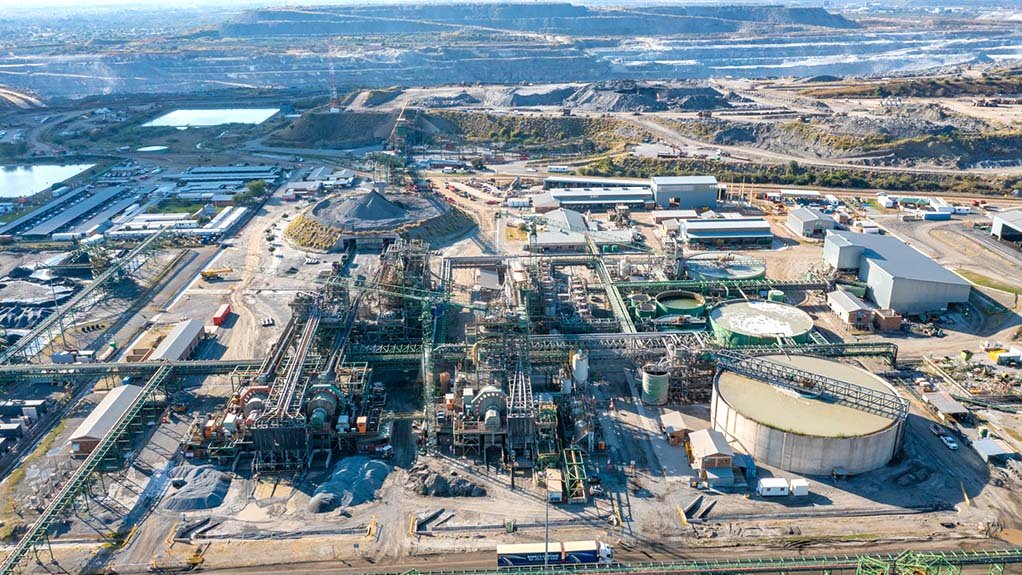Platinum group metals (PGMs) producer Tharisa has received environmental approval (EA) for its 40 MW solar plant project, allowing it to move ahead with the project.
“The EA paves the way for us to deliver on that project, which will allow us to offset daylight operations from the grid. We’re anticipating having that project completed in the second half of next year,” CEO Phoevos Pouroulis said on May 19 at the release of the company’s interim results for the six months to March 31.
The Tharisa PGM and chrome mine in the North West province currently has a maximum requirement of 27 MW for its operations, with the primary source of energy being diesel, owing to the opencast mining cost structure.
The mine also has several standby diesel generators, which provide the capacity for the mine to withstand load curtailments of up to the equivalent of Stage 6 loadshedding without significantly impacting on operations, Pouroulis explained.
“With anything beyond that, our dual processing plant setup allows us the flexibility to manage electricity curtailments and shocks, whereby we could shut down certain parts of our process without materially impacting on the flow of product through the processing plants,” he said.
The new solar power plant forms part of Tharisa’s plan to achieve a 30% carbon footprint reduction by 2030 and to reach carbon neutrality by 2050.
Additionally, the Karo platinum project, in Zimbabwe, is also getting a 30 MW solar power plant. The project has a 24-month design and construction schedule that began on July 1 last year, with the first ore in the mill planned for July next year.
Tharisa owns 70% of Karo Mining Holdings, which in turn indirectly owns 85% of the project.
Pouroulis said the first phase of the 30 MW solar plant at Karo had been initiated.
Meanwhile, Tharisa’s 100%-owned subsidiary Arxo Metals will be launching the Arxo Metals Renewable Energy Centre adjacent to the Tharisa mine in June. This “very exciting initiative” will focus on trialling and testing various energy storage solutions using the commodities produced by Tharisa, including an in-house, long-duration scalable storage solution.
Various other renewable energy technologies will be demonstrated at the centre.
Arxo produces specialised higher-margin chemical and foundry grade chrome concentrates and operates diversified miner Sibanye-Stillwater’s K3 UG2 chrome plant in Rustenburg.
“We certainly believe that technology is the key enabler for differentiation. We can’t compete with our balance sheet with the major producers, but we can compete with applying unconventional thinking to a conventional industry,” Pouroulis said.
Arxo is Tharisa’s research and development (R&D) arm, commercially operating a 1 MW direct current furnace to produce PGM-rich metal alloys, while carrying out extensive R&D into technologies and beneficiation opportunities.
“We’re selling that alloy, albeit on a small scale, but it has formed the basis for front-end engineering design for our full-scale PGM smelting complex, which is being completed as we speak,” Pouroulis said.
He further noted that the newly-launched Arxo Metals Technology Development Centre would provide the capacity to run laboratory and pilot scale test work for alternative processes, focusing on the downstream beneficiation of chrome and PGMs.
“It’s really the incubator for ideas and processes,” Pouroulis said.



